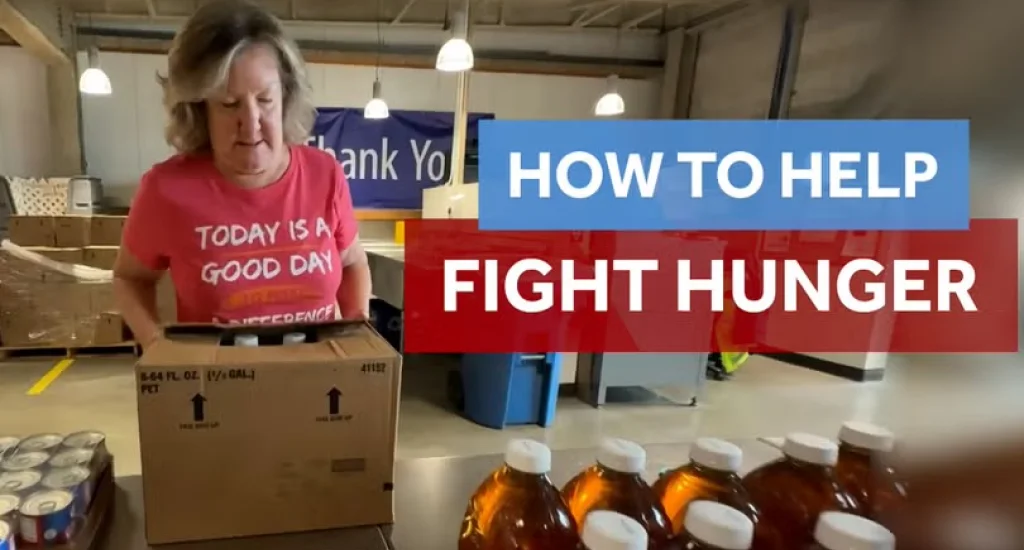
Breaking News Kansas City Today: Families Fight Food Insecurity as SNAP Crisis Deepens
KANSAS CITY — The longest government shutdown in American history entered its 35th day on Tuesday, November 5, 2025, leaving thousands of Kansas City families scrambling to put food on their tables as the Supplemental Nutrition Assistance Program (SNAP) benefits crisis intensifies across the metro area.
Missouri families who rely on food assistance will receive only partial November SNAP benefits after the state secured limited federal funding :antCitation[]{citations="3c621427-68aa-469e-8295-9f30bdbdd153"}, according to the Missouri Department of Social Services. The announcement comes after concerns that benefits might not be distributed at all during the ongoing federal shutdown.
"Last week, we were prepared for the possibility that no benefits could be issued at all," said Jess Bax, Director of the Missouri Department of Social Services :antCitation[]{citations="42720c39-4264-4627-9fa2-2bba8f381846"}. "While we recognize this is not a full restoration, this funding means Missouri families will be able to put food on the table."
The Human Cost of Political Gridlock
For Olivia Holmes, a Kansas City mother shopping for her five-year-old son Landon, the uncertainty has become unbearable. Holmes was among the families receiving emergency grocery assistance from LM2 Construction :antCitation[]{citations="8f0cf741-4f67-4144-b8aa-3ccef6ce2502"}, a local construction company that stepped up to fill the gap left by frozen federal benefits.
"We have to eat," Holmes said simply, her words carrying the weight of a crisis affecting more than 550,000 Missourians and 186,000 Kansans who depend on SNAP benefits to survive.
The Kansas City metro is home to more than 30,000 federal workers who are affected by the shutdown, with about half furloughed without receiving a paycheck, while the other half are considered essential workers working without pay :antCitation[]{citations="31c8d7aa-6584-42ea-b9e5-07daf20533fc"}. This double burden—federal workers without paychecks and SNAP recipients without full benefits—has created what local advocates are calling a humanitarian crisis in America's heartland.
"If families receive half their food budget this month, then that means they're going to be able to eat for half the month, or roughly 15 days." — Dustin Hare, Economic Security Policy Advisor, Kansas Action for Children
Communities Rise to Meet the Crisis
Across the metro area, businesses and nonprofits have mobilized with remarkable speed. Hy-Vee grocery stores with hot food service are offering free meals to children 12 and under from 4 p.m. to 7 p.m. through Friday, November 7.

Amethyst Place, a nonprofit providing long-term safe housing to single mothers recovering from generational substance use, poverty and trauma, currently helps 69 families, almost all of which rely on SNAP benefits :antCitation[]{citations="4bd2a636-880b-43f3-ae5e-22dd7a1d994e"}. Sarah Knopf-Amelung, the organization's Director of Strategy and Growth, says their food pantry—which costs around $1,000 weekly to restock—will likely need double that amount now.
"These are all single moms who have an average of 3-4 children and are just overcoming being unhoused," Knopf-Amelung explained :antCitation[]{citations="eeb0c2e7-0f6b-42a5-a3cb-759d486d90db"}. "To have SNAP benefits paused or reduced this month is really a big blow to these families."
The timing couldn't be worse for Kansas City communities already grappling with a separate public health crisis. As of January 31, 2025, there are 67 confirmed cases of active tuberculosis disease, including 60 in Wyandotte County and seven in Johnson County, associated with an ongoing outbreak :antCitation[]{citations="113b1db3-1413-44cd-916b-a80366ec76d6"} that has drawn national attention to the region's vulnerable populations.
Election Results Offer Little Immediate Relief
Voters in Kansas and Missouri went to the polls on November 4 to decide on a range of issues, including how many days kids should be in school and whether they should abandon their current form of government :antCitation[]{citations="af2391ac-e586-4a9a-988c-9ba0d91da907"}. But for families waiting for their next meal, the political decisions feel distant from the immediate crisis at hand.
Local restaurants have joined the relief effort. LM2 Construction gave 30 families with students at Emmanuel anywhere from $300 to $500 :antCitation[]{citations="f86de302-7d36-4143-9a71-33b68a7560a1"}, providing temporary reprieve for households that lost SNAP benefits over the weekend.
Food pantries across the metro are extending hours and services. Organizations like Bishop Sullivan Center, Village Initiative Inc., and Guadalupe Center Inc. have increased their operations to serve those in need :antCitation[]{citations="7a438b82-5f6b-4e5d-ba6d-2cfbfe0f66a8"}, though many report strain on their own supply chains as demand skyrockets.
The Path Forward Remains Uncertain
While Missouri's partial restoration of SNAP funding offers a lifeline, the Trump administration has warned that depleting the Department of Agriculture contingency fund means "no funds will remain for new SNAP applicants certified in November, disaster assistance, or as a cushion against the potential catastrophic consequences of shutting down SNAP entirely" :antCitation[]{citations="f26633dc-6e8f-4b8c-af18-06c6d9cf117a"}.
For Kansas families, the situation remains even more precarious. The Kansas Department for Children and Families received a memo from the USDA stating that November benefits will not be distributed if the government shutdown continues :antCitation[]{citations="d212a6cc-cede-413a-8479-e51a6e321399"}, potentially halting food assistance to 188,000 people statewide.
As grocery stores report empty shelves and food banks struggle to meet unprecedented demand, the human toll of political dysfunction becomes impossible to ignore. The faces behind the statistics—mothers like Olivia Holmes, single parents served by Amethyst Place, federal workers missing paychecks—tell a story that transcends partisan divides.
In a region already managing a tuberculosis outbreak and preparing for winter's additional challenges, Kansas City's response to the SNAP crisis reveals both the fragility of America's safety net and the resilience of communities determined to care for their most vulnerable neighbors.
As the shutdown drags on with no resolution in sight, one question haunts Kansas City families: How long can compassion and community support sustain what federal policy has failed to provide?
For a complete list of Kansas City-area food pantries and emergency assistance programs, families can contact local organizations or visit KCUR's comprehensive resource guide updated daily as the crisis continues.
Related Articles




